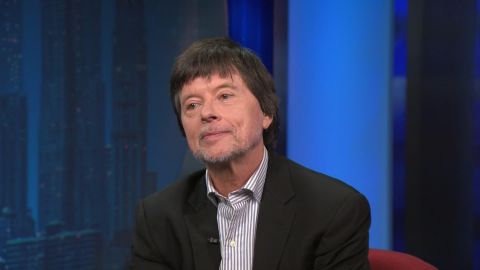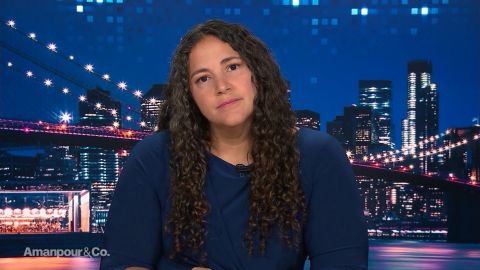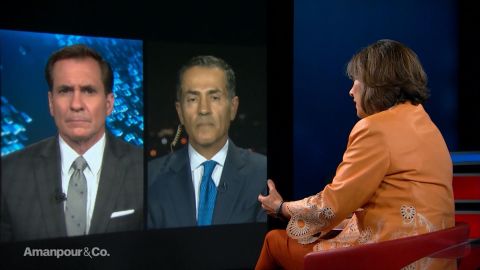Read Transcript EXPAND
CHRISTIANE AMANPOUR: Why would they not have been detected a missile launch wherever it came from?
RETIRED REAR ADMIRAL JOHN KIRBY, U.S. NAVY, CNN MILITARY AND DIPLOMATIC ANALYST: Well, we don’t know that they haven’t, Christiane. I think it’s possible that one reason you haven’t seen more conclusive evidence or more indications that things are being tracked is that there might be an interagency discussion here about not releasing information that would give the Iranians a sense of our own sources and methods and our own overhead intelligence capabilities. So, I think that’s why they went with commercial satellite imagery yesterday to get something out there. And I think there’s probably — my guess would be, just having lived this before, a very healthy robust internal debate inside the administration about how much more evidence can they release and declassify without necessarily sacrificing our own intelligence capabilities in return.
AMANPOUR: And then, the obvious question, is what is done about it? But first, let me turn to Vali Nasr. You have worked in the State Department on Iran and regional issues, you are a long-time expert on the nature of, certainly, this Iranian regime. Firstly, do you think it was Iran or Iran via proxies and, if so, what is Iran’s strategy?
VALI NASR, DEAN, JOHNS HOPKINS SCHOOL OF ADVANCE INTERNATIONAL STUDIES: Well, I think the — more than likely it was from Iran or Iran encouraged it. But I think focusing on whether it was from Iran or not misses the point of what is the message here that Iran is trying to send. And I think the message is that Iran wants out of the economic sanctions. It’s choking its economy. It wants a way out of it. After a year of letting the Europeans negotiate somehow to create room for Iranian economy, they see that failing. And I think they have made a decision that until and unless they make President Trump take Iranian threats in the Persian Gulf seriously, they’re not going to have the real conversation with the administration about lifting the sanctions. And I think they are trying to create a situation in which the U.S. would see Iran willing and capable of disruption, maybe not of the entire global supplies but it can do a lot of disruption to tourism, to business in the region, it can intimidate countries in the region and I think the goal is to get the message across to the United States that Iran is willing to fight. And if you don’t want escalation in the Gulf, if you don’t war, then you have to consider lifting sanctions very seriously.
About This Episode EXPAND
Vali Nasr and John Kirby sit down with Christiane Amanpour to discuss attacks on two critical Saudi oil fields. Laurie Santos, psychologist and host of podcast “The Happiness Lab,” joins the program to explain how students can combat the stress of their daily lives. Filmmaker Ken Burns speaks to Walter Isaacson about his new PBS documentary series “Country Music.”
LEARN MORE


